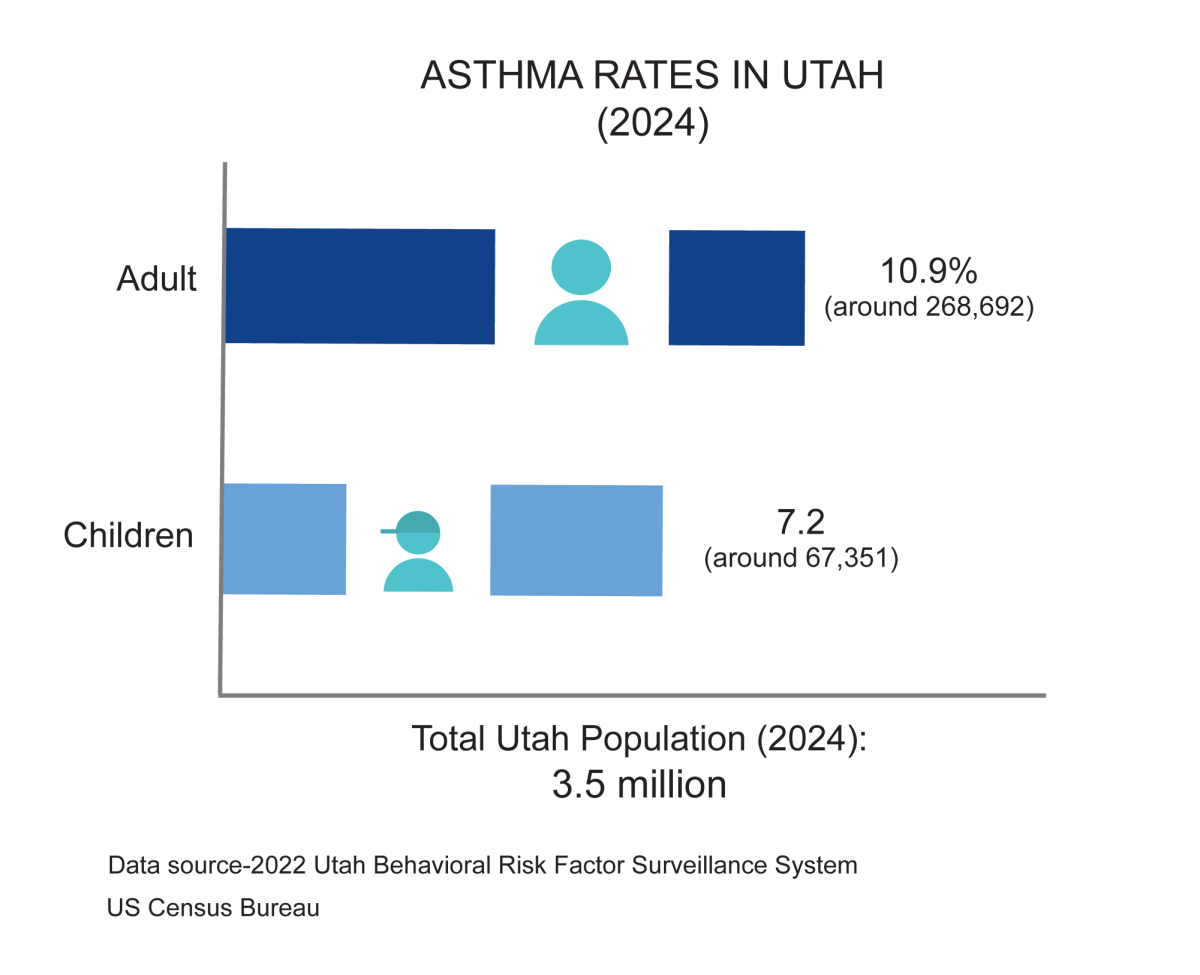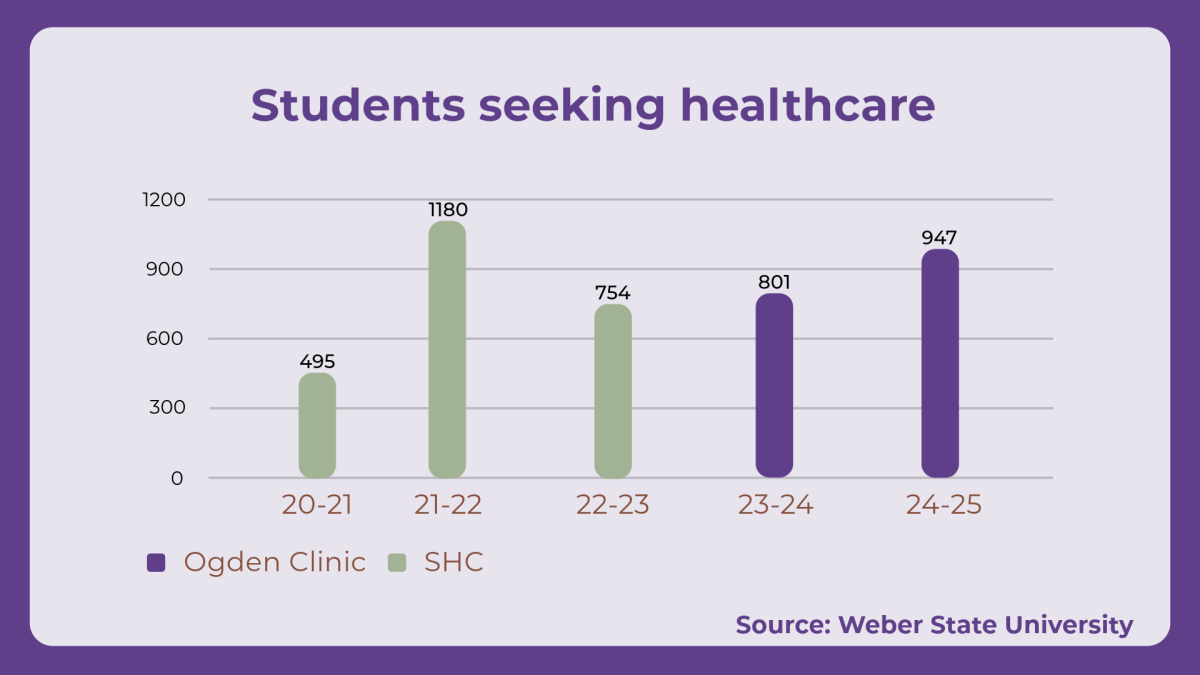
Cigarettes, alcohol and prescription drugs are the most common substances abused by college students, according to Darron Boberg of Utah Addiction Centers. Marijuana is abused, but not as commonly as these legal substances.
According to Boberg, harder substances such as cocaine, meth and heroin are not commonly used by students.
Anxiety and self-esteem issues lead students to medicate, Boberg said. The medication causes problems with anxiety, pressure and self-esteem, causing a never-ending, vicious cycle. This leaves a person chasing mental health around and around.
“Without intervention nothing changes,” said Boberg.
Weber State University is an alcohol and drug-free campus, meaning that alcohol and drugs are not permitted on the campus property, according to the WSU Police Department website. No matter how old you are, you are not allowed to drink alcohol on the Weber campus.
However, from 2011-2013 the top law violations at Weber State were drugs with 32 violations and 54 liquor violations, according to the WSU Police’s Clery Annual Security Report of 2013-2014. The only other crime that was close to reaching these numbers was burglary, with 24 incidences over the past three years.
Boberg said that cigarettes are used to adjust mental health. The WSU Drug and Alcohol Policy states, “Tobacco kills more Americans than auto accidents, homicide, AIDS, drugs and fires combined.” The CDC attributes 480,000 deaths per year to cigarettes. Weber State has no-smoking zones, but it is not tobacco free.
Nationally, alcohol is not as deadly, but it is equally dangerous.
Among students 18 to 24, 1,825 student deaths and 599,000 student injuries are attributed to alcohol. Some 690,000 students say they have been assaulted by another student who has been drinking, 97,000 are victims of alcohol-related sexual assault or date rape. 1.2 to 1.5 percent have tried to commit suicide within the past year due to drinking or drug abuse, according to the National Institute on Alcohol Abuse and Alcoholism.
At Weber State, it’s a misdemeanor for minors to consume or possess alcohol “except in the visible presence of the minor’s adult parent, guardian or spouse,” the policy says.
Opiates, not stimulants, are commonly used by students. They are obtaining pills from doctors, Boberg said.
“The difficulty in obtaining pills is easy,” said Boberg. For $5, a person can buy a Lortab on the street. The more involved students with less money will turn to heroin, because it’s cheaper and easier to access than prescriptions, Boberg said.
“Utah has gotten better. We were at one time the No. 1 state for pain pill consumption, in 2005-ish and 2007, but with a lot of work we’re not near the top,” Boberg said.
In 2012 there were 41,502 drug overdose deaths in the U.S., according to the CDC. “More people now die from opioid painkiller overdoses than from heroin and cocaine combined,” according to the National Institute on Drug Abuse’s website.
Marijuana tops the list of illegal drugs abused by students, Boberg said. The American Society of Addiction Medicine says that marijuana is a mood-altering drug and can have adverse effects on memory, learning, perception, behavior and functioning.
According to the National Organization to Reform Marijuana Law’s website, “Marijuana is the third-most popular recreational drug in America.” Marijuana is nontoxic and cannot cause death by overdose, the group says.
Sgt. Seth Cawley of the WSU Police Department said that drug arrests and citations are few and far between at Weber State University.
“The most common incidents are (with) very small amounts of marijuana,” Cawley said. Marijuana is classified as a minor drug. Students will typically be cited with a class B misdemeanor for possession, depending on the amount.
Students dealing with substance addiction need to know, “There is hope and there is a way out of this,” Boberg said.
The WSU Drug and Alcohol Policy has more information, as does the Utah Addiction Center.







